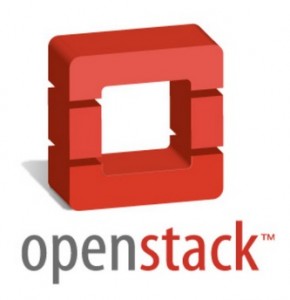 OpenStack is used for construction and administration of public, private and hybrid clouds. The project has reached a scope and importance in the field of cloud computing, which corresponds to the Linux kernel for operating systems. Over 1400 developers from more than 130 companies were involved in the new version called OpenStack Juno, six months after the previous Icehouse appears.
OpenStack is used for construction and administration of public, private and hybrid clouds. The project has reached a scope and importance in the field of cloud computing, which corresponds to the Linux kernel for operating systems. Over 1400 developers from more than 130 companies were involved in the new version called OpenStack Juno, six months after the previous Icehouse appears.
Juno brings according to the developers 342 new features and corrects over 3200 errors from previous versions. Over half a million lines of documentation were adjusted, and a new architectural design guide has been published. The new version offers new functionality, including providing guidelines for storage systems, a new data processing service, the Hadoop and Spark, and foundations for the new topic Network Functions Virtualization (NFV).
OpenStack says new data processing capability automates provisioning and management of big data clusters using Hadoop and Spark. Big data analytics are a priority for many organizations and a popular use case for OpenStack, and this service lets OpenStack users provision needed resources more quickly.
The most important highlight in the development of the OpenStack Dashboard Horizon is the integration of web front Sahara. Sahara can Map Reduce applications running on Hadoop in OpenStack integration. Sahara automates provisioning and management of big data clusters using Hadoop and Spark. According to OpenStack, big data analytics are a priority for many organizations and a popular use case for OpenStack. The new service will allow OpenStack users to provision needed resources more quickly, according to the organization.
The Storage policies allow enterprise users and application developers to decide how they want to store, replicate and access data across different backends and geographical regions. They also provide the ability for public cloud providers to offer storage service tiers. The database service Trove has been extended to some options for replication of MySQL, clusters of Mongo databases, PostgreSQL and Couchbase.
OpenStack Compute Nova now contains the first functions that are intended to make OpenStack the first choice for NFV platform. Nova also received more improvements, including “Bare Metal as a Service” under the new sub-project Ironic.
The OpenStack ecosystem evolves rapidly. Juno offers important enhancements of existing components and brings three new incubator projects that can be included in the official components in one of the next releases – Manila (shared file system service) Designate (DNS Services) and Barbican (Key Management Service).
OpenStack currently seems to have the most momentum. The architecture is supported by heavyweights such as IBM, Cisco, VMware, Microsoft and others. Oracle promised to offer OpenStack-based cloud implementation is coming months. HP plans to invest over $1 billion over two years in the development of its portfolio, both in terms of level engineering services and infrastructure based on OpenStack. Cisco has also announced to invest one billion to build the world a network of larger Intercloud clouds.
The developer community recently launched OpenStack Marketplace for users to evaluate different OpenStack deployment options that best meet their requirements. The new Hosted Private Cloud category offers an open and transparent means to evaluate the full spectrum of OpenStack deployment options and includes Training, Consulting Services, Distributions & Appliances, Public Clouds and Drivers.